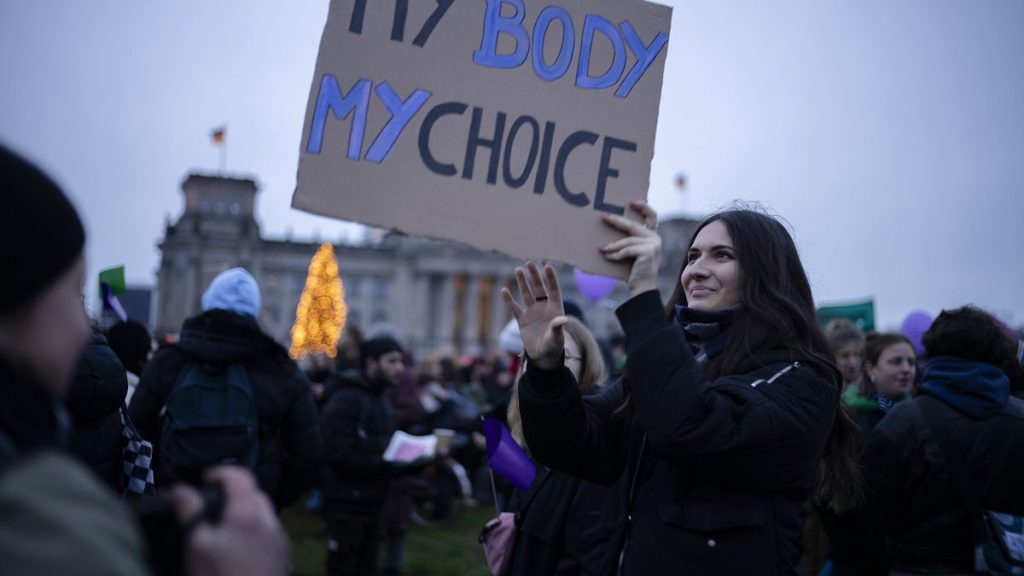The Citizens’ Initiative “My Voice, My Choice” has achieved a significant milestone in its campaign for safe and accessible abortion across the European Union. By securing over one million signatures from citizens across the bloc, the initiative has surpassed the required threshold for the European Commission to formally respond and consider potential action. This achievement underscores the widespread public support for reproductive rights and signifies a crucial step forward in advocating for comprehensive access to abortion services for all EU citizens, regardless of their nationality or residence. The initiative’s success reflects a growing movement across Europe demanding the recognition of reproductive healthcare as a fundamental human right.
The driving force behind “My Voice, My Choice” is the 8th of March Institute, a Slovenian non-profit organization dedicated to promoting gender equality. Their initiative calls on the European Commission to take concrete steps to ensure that every individual within the EU has access to safe and legal abortion services. By surpassing the one million signature mark, the initiative has triggered a mandatory response from the Commission, which must now formally address the concerns raised and decide on a course of action. This development places the issue of abortion access firmly on the EU’s agenda, compelling the Commission to engage with the diverse perspectives and consider the implications for reproductive healthcare across the member states.
The campaign’s success in exceeding the signature threshold in 15 countries, more than double the required seven, highlights the widespread resonance of the issue across the EU. Nika Kovač, the campaign coordinator, emphasized the significance of connecting diverse communities across Europe and building a strong network in support of reproductive rights. The overwhelming response demonstrates a shared understanding across the continent that the right to make autonomous decisions about reproductive health is a fundamental value that must be protected and upheld. This groundswell of support puts pressure on the European Commission to take meaningful action and address the existing disparities in abortion access across the EU.
The debate surrounding abortion access in the EU has been a topic of ongoing discussion within the European institutions. In April, the European Parliament voted in favor of including abortion access in the EU’s Charter of Fundamental Rights, a move that signaled strong support within the Parliament for recognizing this right. However, the resolution remains symbolic as it is non-binding, and enshrining a full-fledged right to abortion access within the EU Charter requires the unanimous agreement of all 27 member states. This requirement poses a significant challenge due to the diverse perspectives and legal frameworks surrounding abortion across the member states.
Disagreements regarding abortion access also played a role in the reassignment of responsibilities within the European Commission. Health Commissioner Olivér Várhelyi saw sexual and reproductive health removed from his portfolio, with responsibility now falling under Equality Commissioner Hadja Lahbib. This shift in responsibilities underscores the political sensitivity of the issue and the complexities involved in navigating the varying views among member states. Commissioner Lahbib has acknowledged the importance of finding a solution that respects member state competence while also ensuring the protection of women’s lives and health.
The “My Voice, My Choice” initiative, with its significant achievement in gathering signatures, injects renewed momentum into the ongoing debate concerning abortion access in the EU. It compels the European Commission to confront the issue directly and explore potential pathways toward harmonizing access to safe and legal abortion services across the bloc. While the path to achieving full recognition of abortion access as a fundamental right remains challenging given the requirement for unanimous agreement among member states, the success of the initiative serves as a powerful demonstration of public support for reproductive freedom and reinforces the imperative for continued dialogue and action towards ensuring safe and accessible abortion for all within the European Union. The initiative signals a growing demand for reproductive autonomy and emphasizes the need for policies that prioritize women’s health and empower them to make informed decisions about their bodies.














